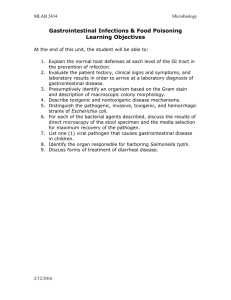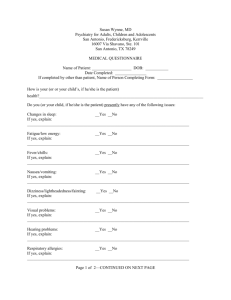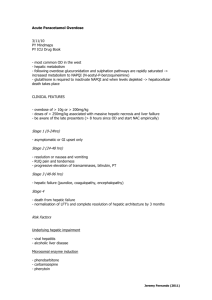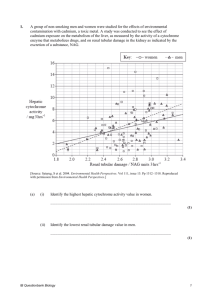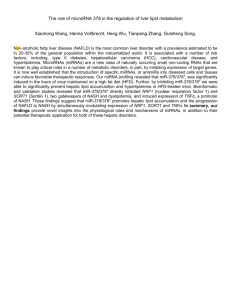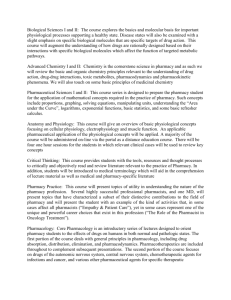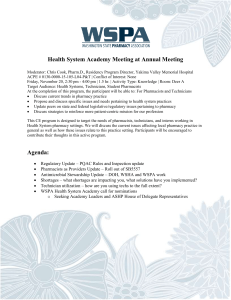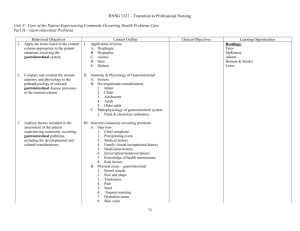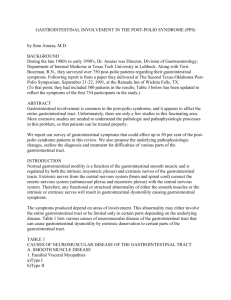Module Description Template
advertisement
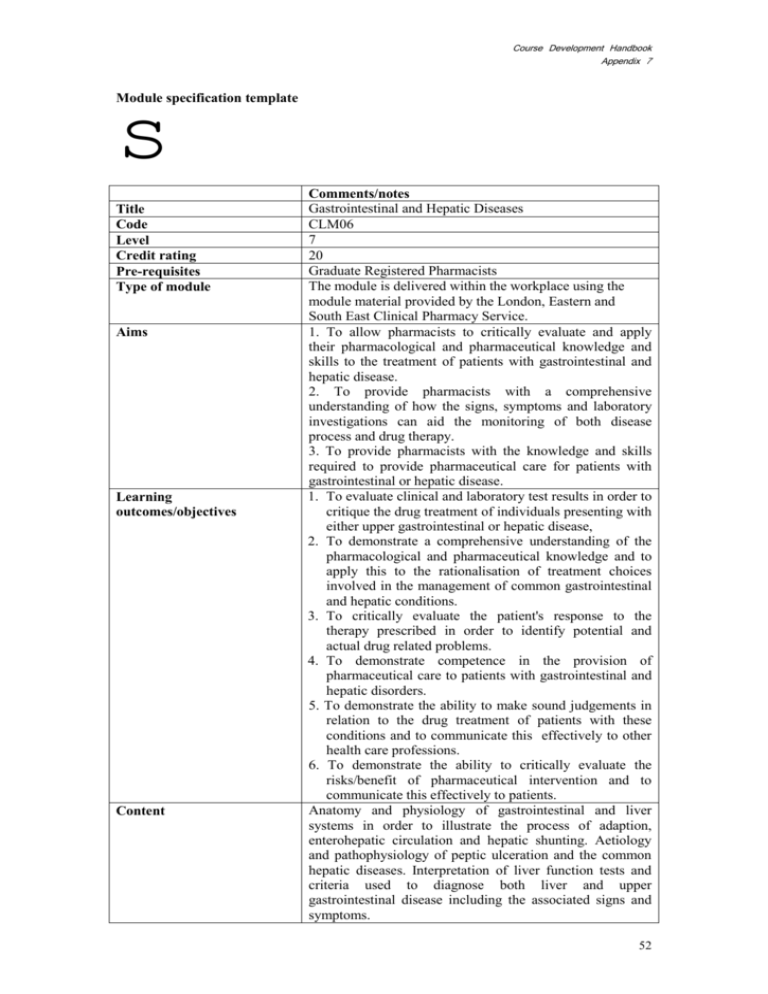
Course Development Handbook Appendix 7 s Module specification template Title Code Level Credit rating Pre-requisites Type of module Aims Learning outcomes/objectives Content Comments/notes Gastrointestinal and Hepatic Diseases CLM06 7 20 Graduate Registered Pharmacists The module is delivered within the workplace using the module material provided by the London, Eastern and South East Clinical Pharmacy Service. 1. To allow pharmacists to critically evaluate and apply their pharmacological and pharmaceutical knowledge and skills to the treatment of patients with gastrointestinal and hepatic disease. 2. To provide pharmacists with a comprehensive understanding of how the signs, symptoms and laboratory investigations can aid the monitoring of both disease process and drug therapy. 3. To provide pharmacists with the knowledge and skills required to provide pharmaceutical care for patients with gastrointestinal or hepatic disease. 1. To evaluate clinical and laboratory test results in order to critique the drug treatment of individuals presenting with either upper gastrointestinal or hepatic disease, 2. To demonstrate a comprehensive understanding of the pharmacological and pharmaceutical knowledge and to apply this to the rationalisation of treatment choices involved in the management of common gastrointestinal and hepatic conditions. 3. To critically evaluate the patient's response to the therapy prescribed in order to identify potential and actual drug related problems. 4. To demonstrate competence in the provision of pharmaceutical care to patients with gastrointestinal and hepatic disorders. 5. To demonstrate the ability to make sound judgements in relation to the drug treatment of patients with these conditions and to communicate this effectively to other health care professions. 6. To demonstrate the ability to critically evaluate the risks/benefit of pharmaceutical intervention and to communicate this effectively to patients. Anatomy and physiology of gastrointestinal and liver systems in order to illustrate the process of adaption, enterohepatic circulation and hepatic shunting. Aetiology and pathophysiology of peptic ulceration and the common hepatic diseases. Interpretation of liver function tests and criteria used to diagnose both liver and upper gastrointestinal disease including the associated signs and symptoms. 52 Course Development Handbook Appendix 7 Content (cont.) Teaching and learning strategies Learning support Assessment tasks Brief description of module content and/or aims (maximum 80 words) Area examination board to which module relates Management of complications of liver disease; acute bleeding, ascites, encephalopathy. Management of upper gastrointestinal ulceration; oesophagitis and peptic ulceration. Design of acute and maintenance treatment regimens. Prevention and treatment of drug induced gastrointestinal or hepatic disease. Details of the standard module format are provided in the programme specification. The material is presented in electronic form and is normally provided to the student to work through systematically under the supervision of an appropriate senior clinical practitioner. Periodic meetings with the local tutor allows understanding and the application of this information to patient care to be reviewed and the ability of the individual to perform key skills to be evaluated. Material is presented as a computer package to direct the student learning. Students are then required to complete an array of practice activities (see programme specification) and demonstrate their competence to perform an array of clinical tasks before being eligible to register for the module assessment. Students are required to read and evaluate articles contained within the appropriate medical journals in addition to the appropriate chapters contained within the general indicative texts listed below: Kumar P, Clark M. Clinical Medicine(5th Edition) Edinburgh. WB Sauders 2002. Doods L. Drugs in Use. 3rd Edition. The Pharmaceutical Press 2002. Walker R, Edwards C. Clinical Pharmacy and Therapeutics. 3rd Edition. Churchill Livingstone. 2002. The assessment strategy embraces the concept of “fitness for purpose” so that students are required to demonstrate their ability to apply the knowledge and skills acquired to resolve a range of clinical problems. This requires the student to gather and critically evaluate clinical data prior to engaging in complex decision making, culminating in the provision of advice to health care professionals and patients. These problems are designed to reflect scenarios routinely encountered in clinical practice. This requires students to complete an objective structured clinical examination (OSCE), comprising of 10 clinical scenarios, reflecting clinical practice in the module being studied. To pass the module students must satisfy the criteria in 7 of the ten stations, and present an acceptable portfolio. The module details the signs, symptoms and biochemical tests associated with patients with gastrointestinal and hepatic disease. A comprehensive, evidence-based review of the available treatment follows. Students are required to apply this knowledge to resolve drug related problems in patients housed in general medical wards. Course Examination Board only (normally March and September each year) 53 Course Development Handbook Appendix 7 Module team/authors/ coordinator Semester offered, where appropriate Site where delivered Date of first approval Date of last revision Date of approval of this version Version number Replacement for previous module Field for which module is acceptable and status in that field Course(s) for which module is acceptable and status in that course School home External examiner Produced by practitioners specialising in gastrointestinal and hepatic disease. Module leader – Sotiris Antoniou Senior Pharmacist, Barts and the London NHS Trust. Not applicable. The School of Pharmacy and Biomolecular Sciences of the university is responsible for the designing and organising the assessment process and the overall standard of the course. The local hospitals have responsibility for the tuition, which is co-ordinated by the London, Eastern and South East Clinical Pharmacy Service. August 1994 September 2004 3 PG Certificate in Applied Therapeutics. PG Diploma in Clinical Pharmacy Practice. Pharmacy and Biomolecular Sciences Mr Jonathan Silcock. March 2004 - 2008 54
